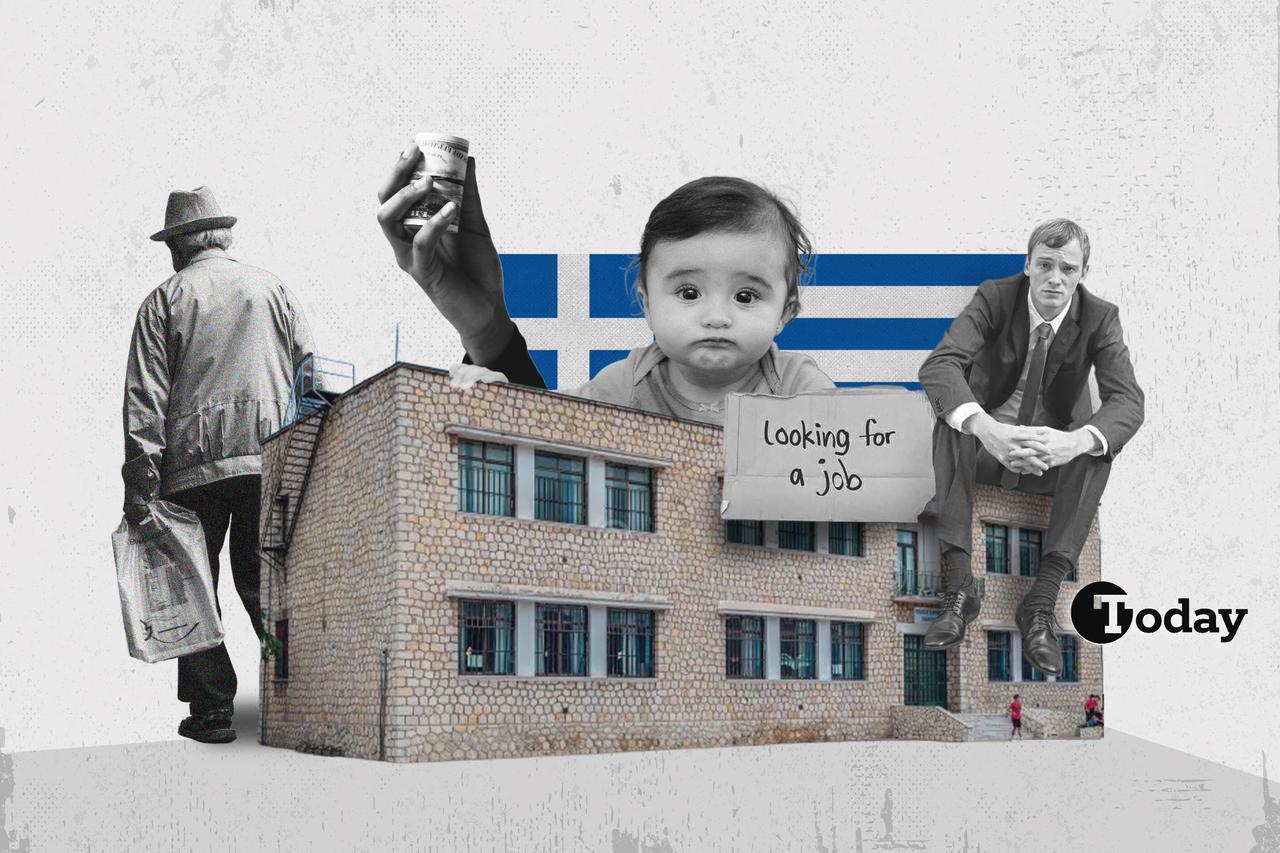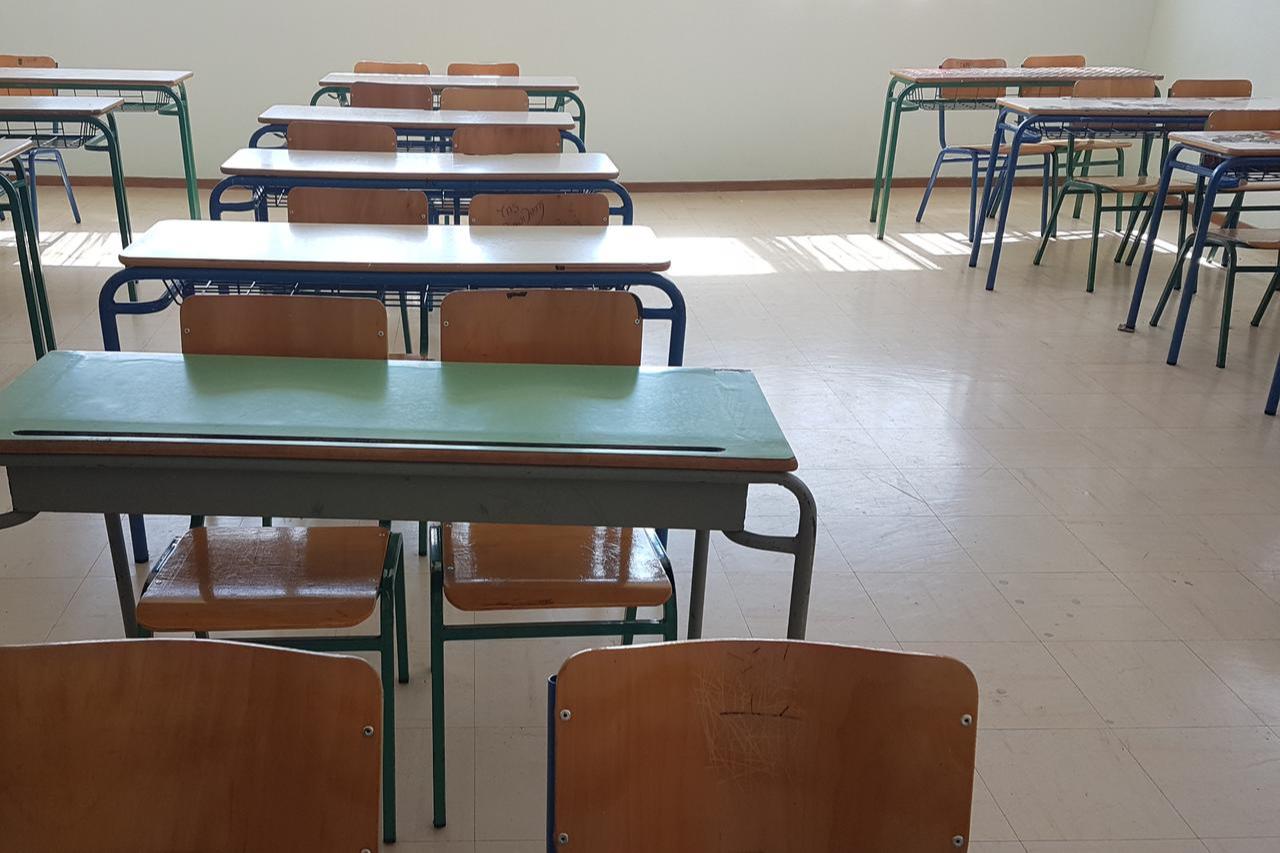
Greece is closing more than 750 schools this academic year as a steep decline in births leaves classrooms empty.
The closures represent over 5% of the country’s schools and show how the demographic crisis is reshaping daily life. Officials say the measure affects both small rural communities and major urban areas, including parts of the Attica region around Athens.
Education Minister Sofia Zacharaki said the closures reflect a long-running decline in childbearing. “Classrooms reflect the state of our maternity wards and the number of births, which, unfortunately, has been declining for decades in our country,” she noted.
The situation has now reached a level where officials warn of a “collapse in demographics,” with consequences for schools, families, and the broader economy.

For the 2025–2026 academic year, Greece is suspending 766 out of its 14,857 schools after they failed to meet the minimum enrollment of 15 pupils.
Most of the closures are in primary schools and kindergartens, though secondary schools are also affected. Under Greek law, institutions that remain below the threshold for three years are permanently shut.
Officials describe the situation as an “acute demographic problem,” warning that closures are increasing each year.
The suspensions are not limited to remote villages or small islands. Seventy-seven schools, including 73 kindergartens, will not open in Attica, the region that includes Athens.
Education ministry officials say some children in rural areas are forced to travel as far as 80 kilometers each day to attend the nearest functioning school.
The closures reflect a nationwide problem, with schools closing across all types of communities.
The number of pupils in Greece has dropped sharply over the past seven years.
Primary education alone has lost more than 111,000 students since 2018, a fall of about 19%. The total student population across all levels is now projected at 1.21 million for the new academic year, down from 1.36 million in 2018–2019.
Officials say the trend shows no sign of slowing, with every school year bringing further losses.
The figures confirm what experts call a deep demographic crisis that is reshaping Greece’s education system.
Greek officials have warned that the scale of closures reflects a much deeper demographic collapse.
Education and Religious Affairs Minister Sofia Zacharaki said the emptying classrooms mirror the state of maternity wards across the country.
“Classrooms reflect the state of our maternity wards and the number of births, which, unfortunately, has been declining for decades in our country,” she told the Financial Times. She stressed that while keeping small schools open in border regions is costly, the government considers it necessary.

Demographers and ministry officials describe the problem in stark terms. “The demographic problem is terrifying, as we experience it year after year,” said Christos Tsiamalos, a senior education ministry official, as reported by First Post.
Alexandra Tragaki, professor of economic demography at Harokopio University of Athens, said, “The fall is happening very fast, and in Greece it is very steep.” Experts argue that the combination of fewer women of reproductive age, later childbirth, and long-term economic pressures has created an acute demographic crisis with no quick solutions.
Greece has maintained one of the most dispersed primary school networks in Europe, though the overall number of schools has gradually declined in recent years.
According to data published by the Hellenic Statistical Authority (ELSTAT) in October 2020, the country operated 4,452 primary schools during the 2018/2019 school year, of which 4,293 were public and 159 private.
These schools enrolled a total of 631,700 pupils and employed 72,561 teachers, resulting in an average of 142 pupils per school and a notably low pupil–teacher ratio of 8.7 to 1.
By contrast, more recent figures from the Ministry of Education’s myschool/Diofandos database show that the number of mainstream primary schools had fallen slightly to 4,188 units.
This figure includes 3,394 standard full-day public schools, 154 private schools, 623 multi-grade rural schools, and 17 minority schools, with an additional 182 special education primary schools operating nationwide
The overall trajectory reveals two patterns. The total number of schools is shrinking only marginally, reflecting a cautious state policy toward consolidation. At the same time, the network still mirrors Greece’s geography: alongside large urban schools in Athens and Thessaloniki, hundreds of small multi-grade institutions remain open on islands and in mountain villages, often serving fewer than 20 pupils.
Contrast is striking in European context
The Netherlands, with a population of 17.5 million, operated 6,056 primary schools serving about 1.47 million pupils in 2022, an average of roughly 243 pupils per school, according to Eurydice.
Thus, Greece seems to maintain nearly as many schools as the Netherlands but educates less than half as many children.
This imbalance reflects not only declining birth rates but also political and social resistance to school closures. Thousands of small villages, mountain communities, and island settlements continue to support local schools despite very low enrollments.
As a result, Greece sustains one of the most fragmented primary education systems in Europe, a structure shaped more by geography and demography than by deliberate educational policy.
Rural and island exceptions
Despite the strict 15-pupil rule, exceptions exist in border areas and remote islands near Türkiye. These schools are kept open even with tiny enrollments, reflecting their symbolic and strategic importance.
One notable case is Pserimos in the Dodecanese, which reopened in 2025 for just five children, two in primary school and three in kindergarten, after being closed since 2009.
Zacharaki defended the decision: “We’re keeping schools open with fewer pupils than the law normally allows, a costly decision, but one we believe is necessary.”
So what is behind this crisis Greece is facing? The demographic decline is rooted in long-term structural shifts.
Since 2011, deaths have outnumbered births annually. Births fell below 80,000 in 2022, while deaths nearly doubled that figure in 2023. The number of women of childbearing age (20–40) dropped by 500,000 between 2001 and 2021. Greece’s fertility rate now stands at 1.3–1.35, among the lowest in Europe, while the average age for a first child has risen above 32 years.
The debt crisis of the 2010s forced many young people to postpone family plans. Emigration worsened the situation, with thousands of educated professionals leaving for work abroad.
Army sergeant Christos Giannakidis summarized the sentiment: “To have a family these days, you need to become a hero.”
“To have a second child, more money must come into the house," he added.
Compounding these pressures is corruption and mismanagement, which drained resources that could have supported families and eroded trust in institutions.
A recent scandal, for instance, highlighted the scale of the problem: between 2016 and 2022, fraudsters, allegedly aided by officials, siphoned millions from EU agricultural subsidies through fake claims for non-existent crops and livestock. Investigators uncovered absurd cases, including banana plantations supposedly growing on Mount Olympus and herds of sheep allegedly grazing off the coast of Crete.
The scheme triggered a record €392 million ($458 million) fine from the EU, forced the resignation of high-ranking Greek government officials, including a minister and deputy ministers, and sparked a parliamentary probe into systemic fraud.
Greece has implemented several measures to deal with the crisis. However, whether these will be effective is a debatable issue.
For instance, the government has introduced incentives under its National Demographic Action Plan, including increased child benefits—rising from $2,300 to $2,800 for one child, and from $3,000 to $4,000 for two or more children—reaching about 300,000 families. The plan is backed by a projected €20 billion investment through 2035.
Yet teachers and parents remain skeptical. Nektaria Mouropoulou, a teacher earning $1,083 a month, says she struggles to pay rent and even crosses into Türkiye for cheaper petrol. “Politicians are missing the point,” she argued, emphasizing that small financial incentives cannot offset deep economic insecurity.
Zacharaki has reassured families: “No child will be left without access to education, no matter how remote their home may be.”
Greece’s demographic crisis has not gone unnoticed abroad. The wave of school closures sparked international debate when Elon Musk reacted on X, posting just three words: “The death of Greece.”
The post, which quickly went viral, reflected Musk’s long-standing warning that collapsing birth rates pose a fundamental threat to civilization.
The closure of more than 750 schools is not simply an education issue; it is the most visible symptom of Greece’s demographic emergency. Empty classrooms mirror empty maternity wards and shrinking villages, highlighting a cycle that threatens the country’s economic vitality and social cohesion.
The roots of the crisis lie in low fertility, emigration, and delayed family formation, all aggravated by the debt crisis of the 2010s. Corruption and mismanagement further deepened the decline, draining resources and weakening trust in public institutions.
Without bold, sustained action to tackle the intertwined problems of low fertility, emigration, economic insecurity, and corruption, Greece risks a future where the empty desks of today foreshadow an entire society in decline.